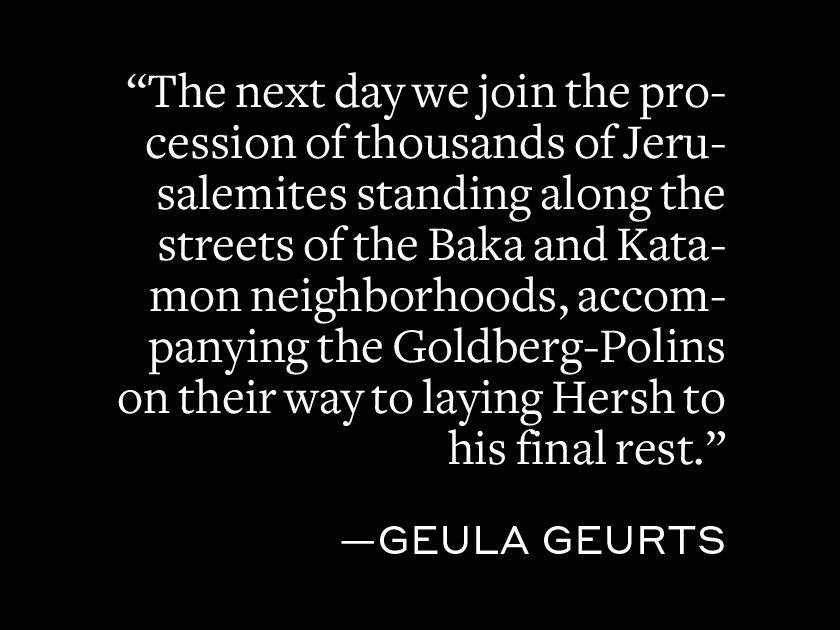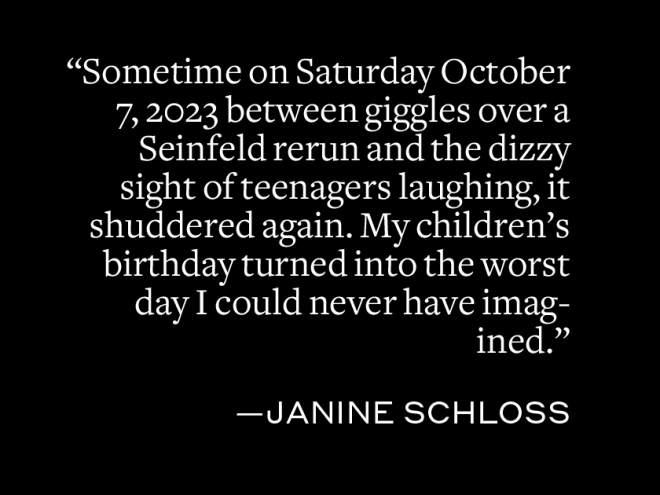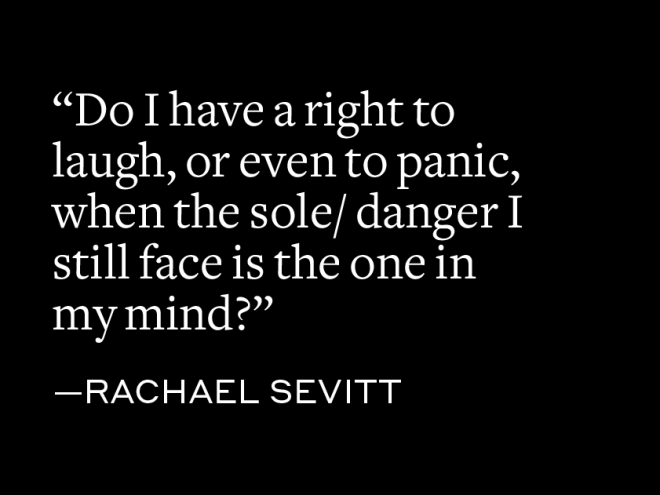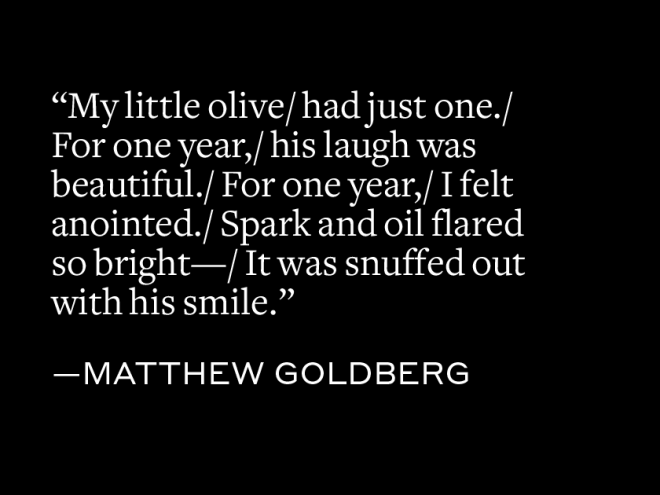
This piece is part of our Witnessing series, which shares pieces from Israeli authors and authors in Israel, as well as the experiences of Jewish writers around the globe in the aftermath of October 7th.
It is critical to understand history not just through the books that will be written later, but also through the first-hand testimonies and real-time accounting of events as they occur. At Jewish Book Council, we understand the value of these written testimonials and of sharing these individual experiences. It’s more important now than ever to give space to these voices and narratives.
The night before Hersh Goldberg-Polin’s body is recovered, our family is woken up early. At three a.m. an uncontrollable sob echoes through our building. The sound of a hacking dog. Startled, I sit up and remember that I’m lying on the couch. The dog is in fact a woman choking on her tears. Our toddler lies in our bed, kicking his father. This time I’m the one demoted to the couch. Every night, my love and I take turns wrestling this little body made from our bodies. Sleep is no longer an island of escape from the blinding daylight — the daily war has seeped into our nights.
I wonder whether the crying is coming from the upstairs neighbor. I know she suffers from migraines. I realize that the choking is coming from outside, from the park next to our building. A woman crying in the dark morning hours on a public bench. I hear my daughter opening the door to her room. She finds me on the couch and pushes me over to make space for her body made from my body.
“I had a bad dream,” she whispers.
“What was the dream?” I ask. “If you speak it, it’ll lose its powers.”
“I heard a witch.”
A wailing woman crept into my daughter’s dream, transformed into a witch, and shook her out of sleep. A monster. I don’t have the heart to tell her that a real-life woman sits outside, wrestling with her own body in the night. Cackling. Hacking. Choking. A witch. A monster. From the Latin monstrum, derived from the verb moneo, “to warn, to foretell.” An omen for what the next day is to bring. A woman’s personal pain made public.
My daughter pokes her elbow into my ribs and falls back asleep. The couch is a cramped raft drifting through the night. The sound of the woman’s sobs washes in like waves, as I bob off into a restless sleep.
That morning, Rachel Goldberg-Polin wakes up as the mother of all lost boys. All mothers wake up as the mother of Hersh. All children wake up feeling their mothers wrestling with their own bodies, in the blinding light of day. All of us sitting on that park bench, retching up our insides, the bodies made from our bodies.
That morning is the first day of the new school year. All mothers separate from their children. I leave my three-year-old son in daycare, screaming. It’s his first day in an all-Hebrew speaking gan. His right arm is held tight in a cast, broken, after he fell from a slide during the summer holidays. For weeks he’s been writhing in his sleep trying to find a comfortable position. I look at his little arm and think of Hersh’ phantom limb, his arm blown off from the elbow down on October 7. How did Hersh fall asleep for three hundred and thirty days, in an airless underground tunnel, missing his arm? I leave my screaming son in daycare.
Monster — meaning “one who deviates from its normal form, structure, or character.” Monstrous. A woman who no longer complies with her form. A mother burying her son becomes unrecognizable to herself. The body birthed from her own body is now a phantom limb.
The next day we join the procession of thousands of Jerusalemites standing along the streets of the Baka and Katamon neighborhoods, accompanying the Goldberg-Polins on their way to laying Hersh to his final rest. Mothers, fathers, girls, boys, teenagers, grandparents, all waving flags, singing psalms and songs of comfort as the family’s cars drive past.
My daughter puts aside her flag and joins a group of children huddled around a bench. There, I see two flat sheaves of tree bark with heaps of snails stuck on top of each other. The children are picking off the shells in the hopes of finding their inhabitants inside. But it’s the end of summer and the snails have dried out. The shells are all empty husks, abandoned homes, protectresses without their litter. Still, the children keep unsticking the shells, keep turning them over to see if this time, this one snail will appear from its hiding place, a phantom, against all odds.
The views and opinions expressed above are those of the author, based on their observations and experiences.
Support the work of Jewish Book Council and become a member today.



